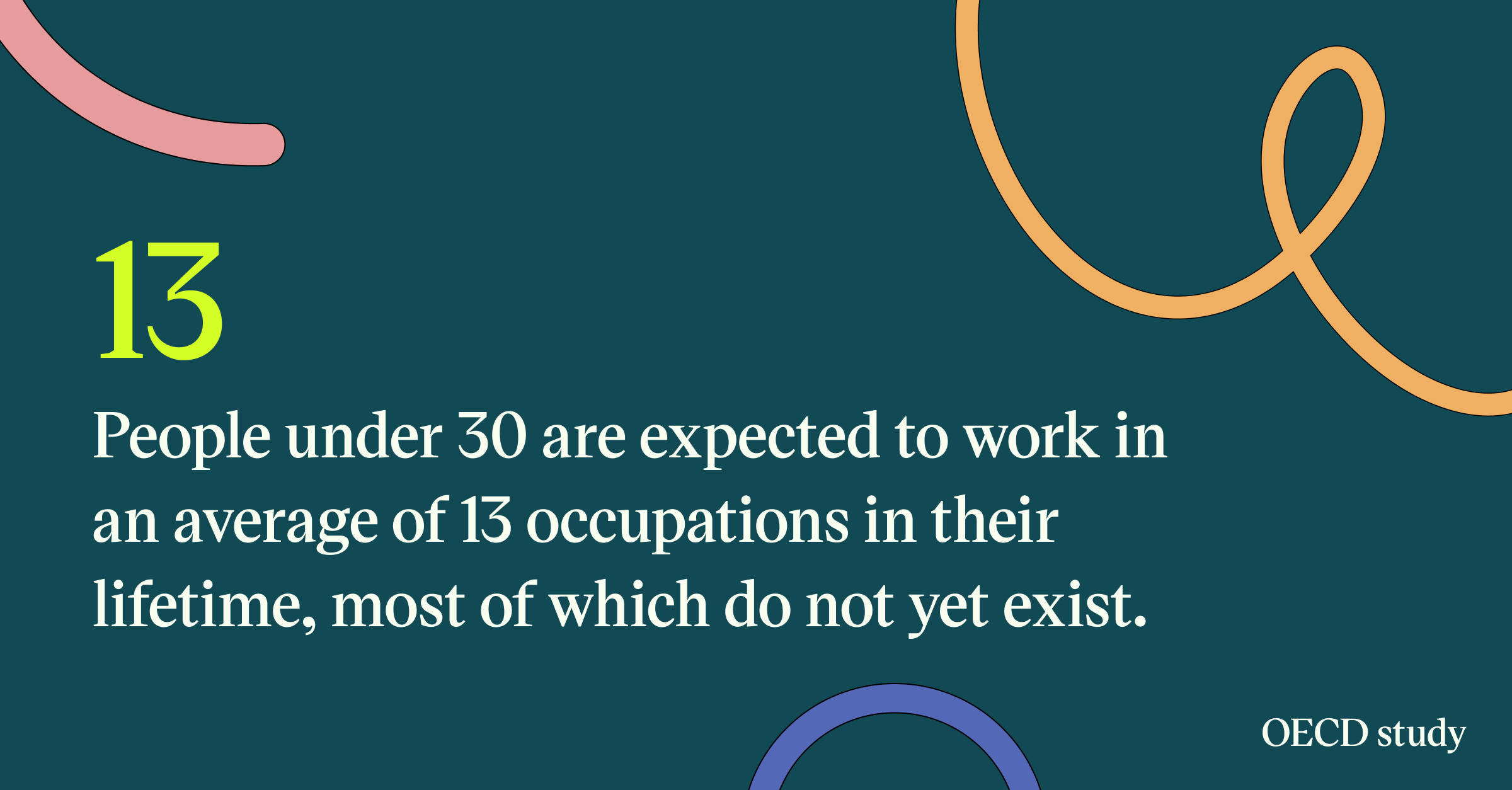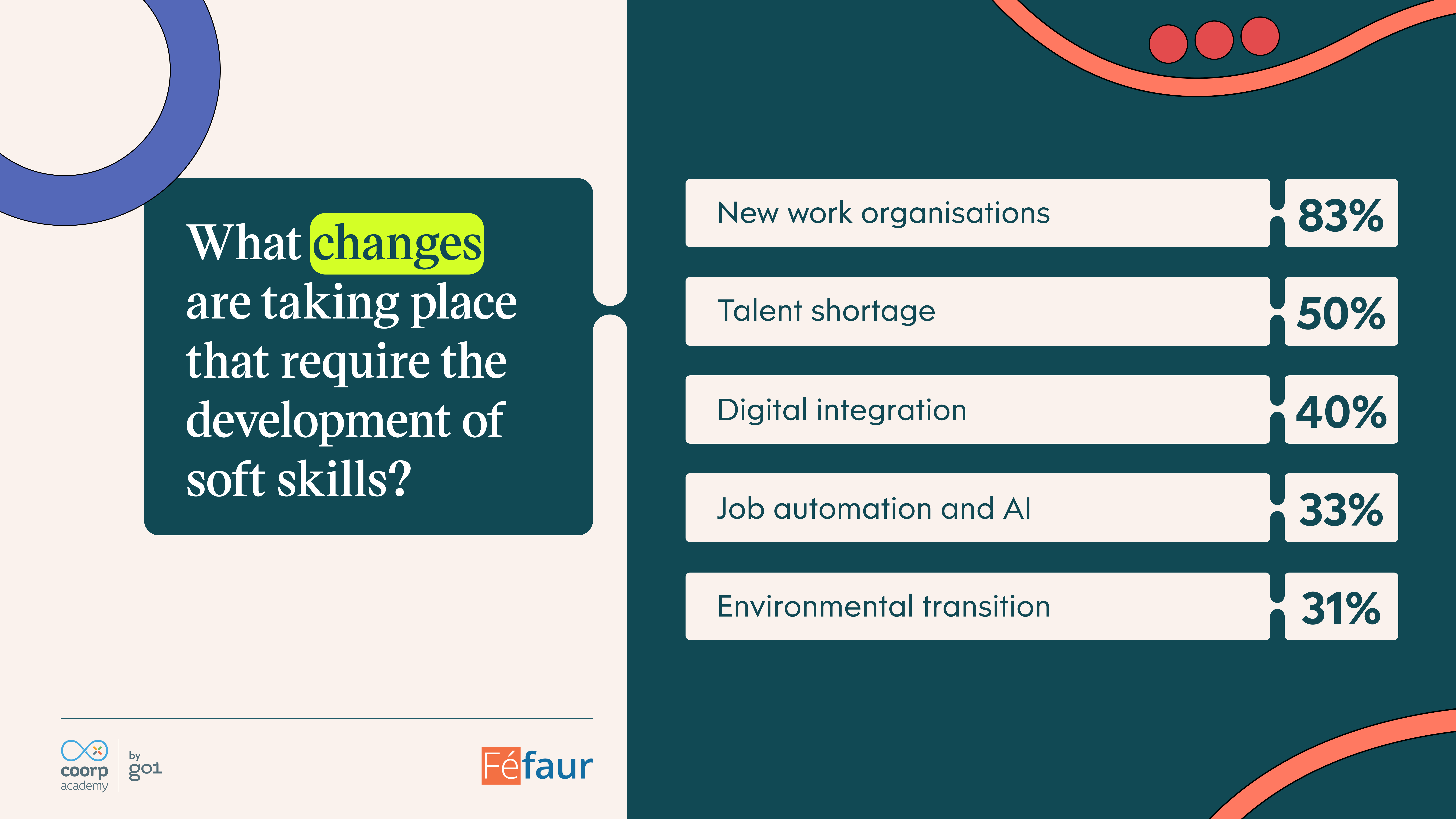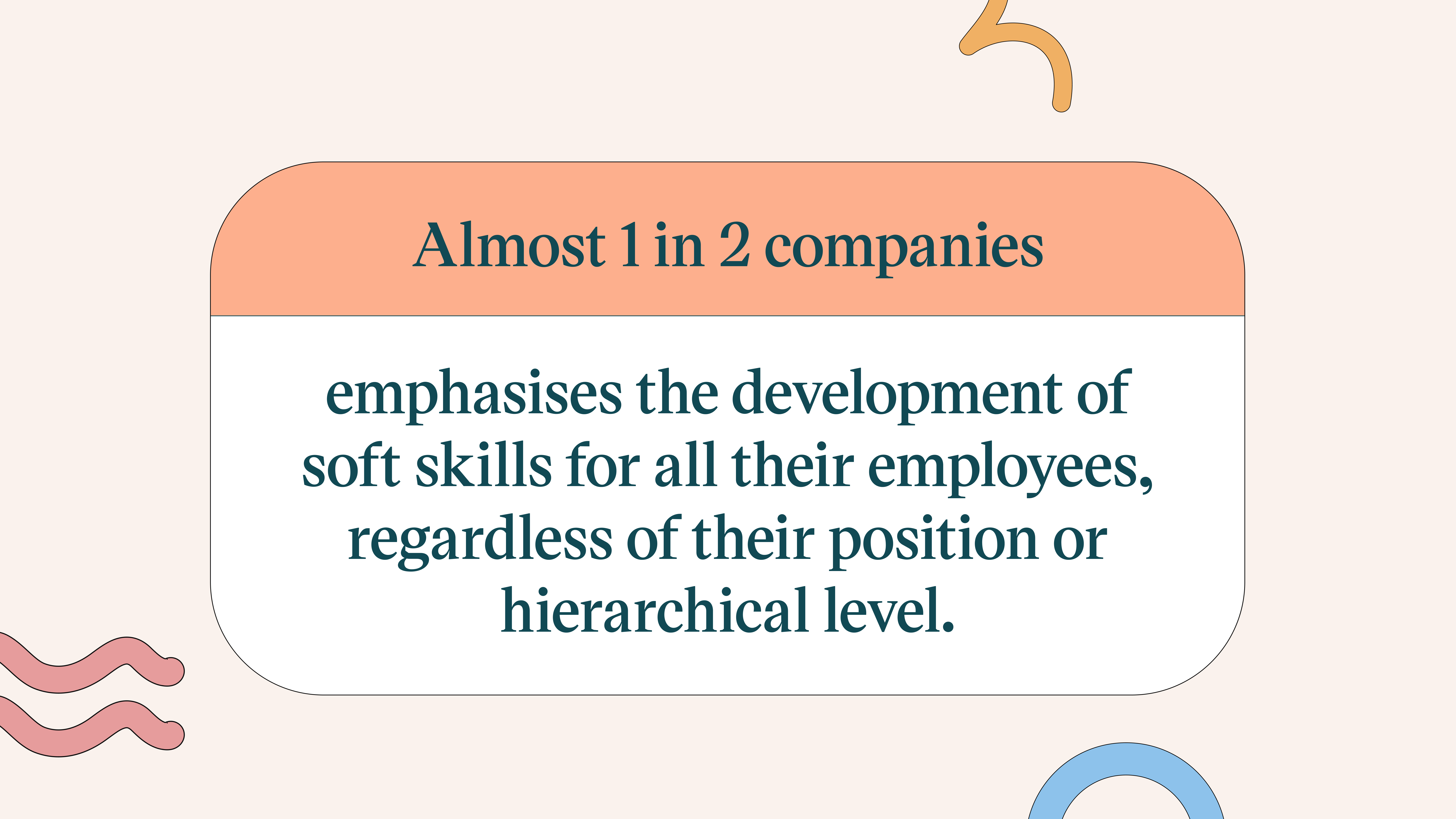Earth Day, celebrated every year on 22 April, gives us the opportunity to remind ourselves of the importance of protecting our planet and to raise public awareness of environmental issues.
There is unanimous agreement that the climate emergency we are collectively facing cannot be resolved without the strong involvement of businesses, which have a crucial role to play in the ecological transition.
Indeed, companies are responsible for a significant share of greenhouse gas emissions and have a direct impact on the environment, notably through their consumption of energy and raw materials. But corporate responsibility does not stop there.
Consumers and employees expect companies to take environmental issues into account in their strategy and operations, and to make a concrete commitment to the ecological transition. According to an IFOP study, 81% of French people believe that companies have a role to play in reducing their impact on the environment and 78% believe that companies must commit to the ecological transition (2021).
Initiatives are beginning to be taken to move in this direction. For example, in France, in April 2023, employers’ organisations and trade unions reached an interprofessional agreement to promote the consideration of ecological transition issues in companies.
Given the urgency, we are only at the beginning of the efforts that remain to be made and we can only encourage the most ambitious and concrete initiatives possible to move forward, without further delay.
Moreover, the changes expected of companies do not only affect their economic models, their products and their services. Their transformation cannot take place without accompanying what constitutes them: people!
It is therefore necessary to train employees at all levels of the company because every decision taken has an impact – small or large – on the environment, whether it is linked to a polluting job, uses that are harmful to the planet or a lack of knowledge about eco-actions. All industries are concerned.
That is why this year we are proposing a quiz that we encourage you to carry out and distribute, in order to raise awareness of environmental issues in our society and to remind us of the importance of training to support the ecological transition of companies.
This quiz covers the basics of several of our courses:
-Take action for the ecological transition, C3D-PRE
-The path to digital sustainability, Fabernovel
-Towards carbon neutrality, Faurecia University
-Understanding the environmental crisis, C3D-PRE
-The circular economy: from a straight line to a virtuous circle, MySezame
Quiz “Earth Day: green your skills”.
We have selected 10 questions, directly from our courses designed by our educational team. Find the answers to the questions at the end of the article, no cheating!
Questions
1.
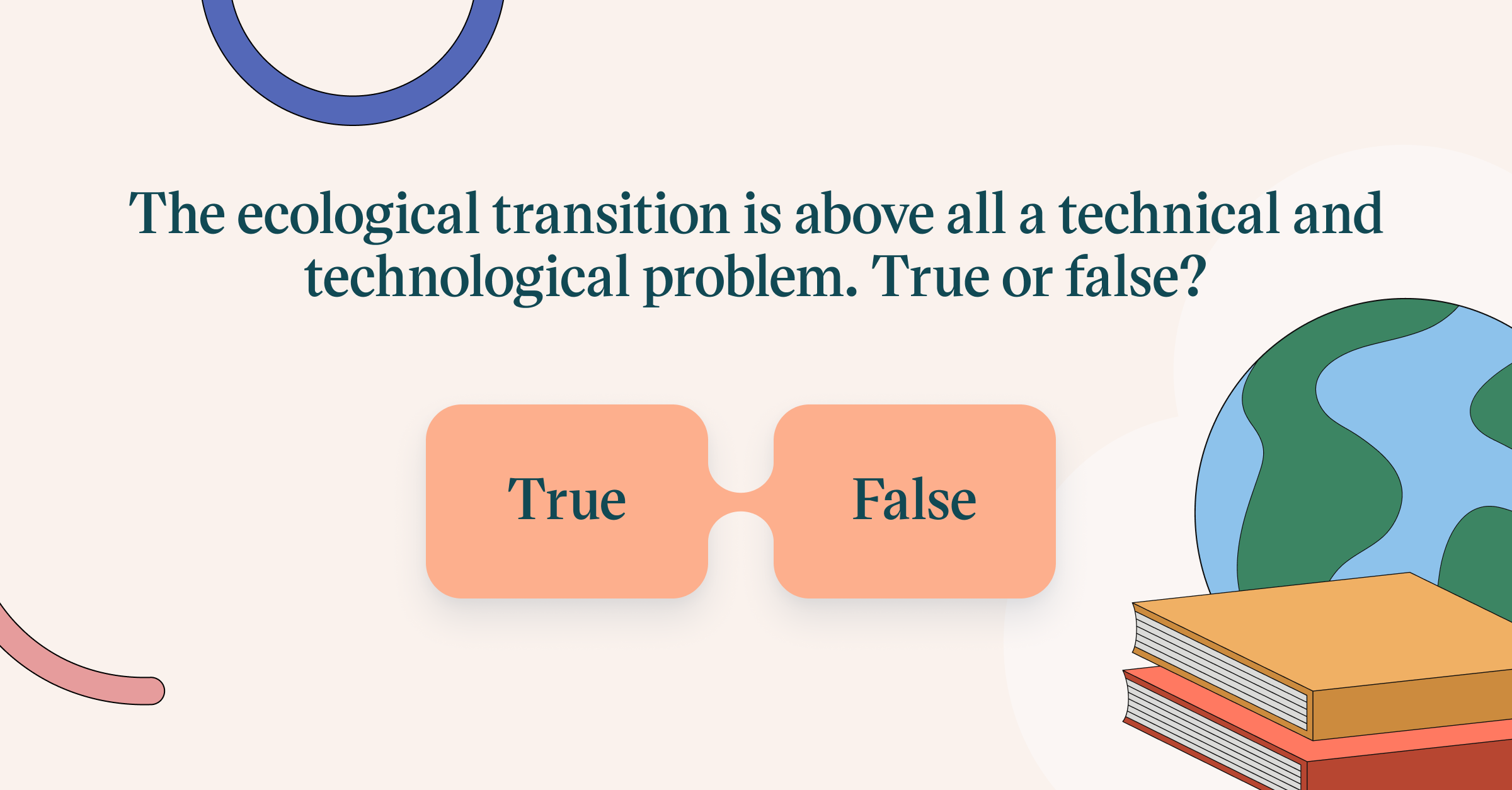
2.
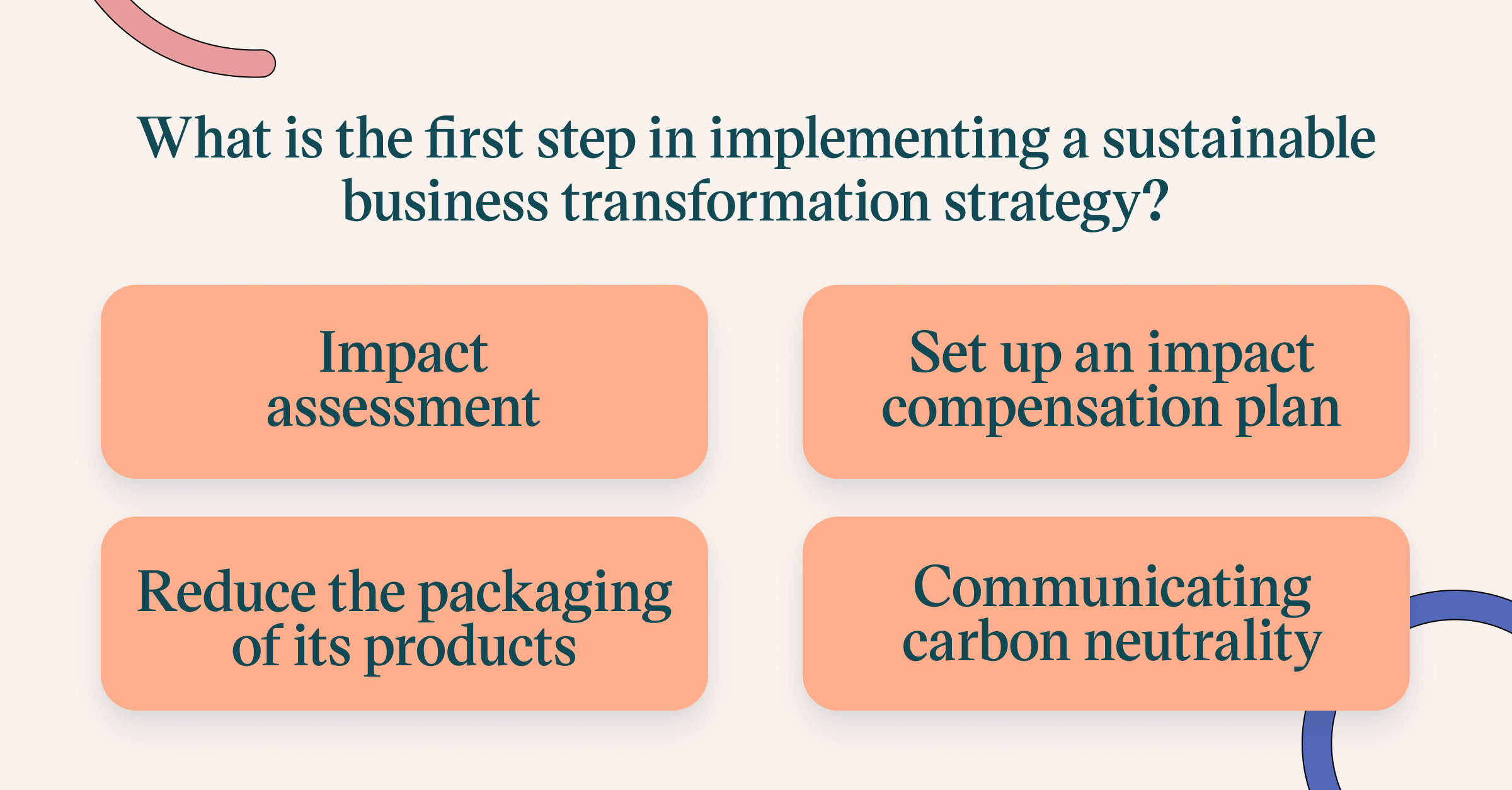
3.
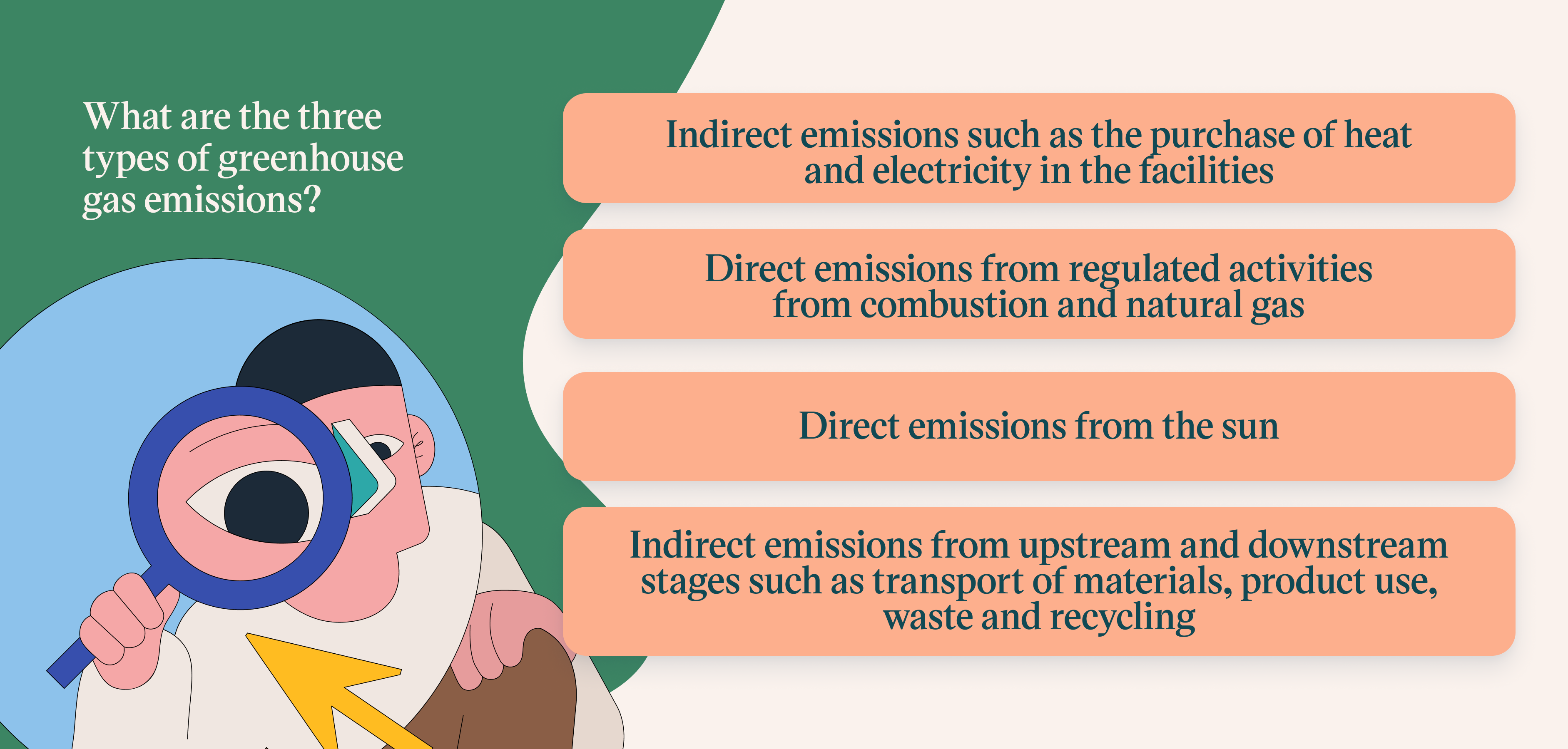
4.
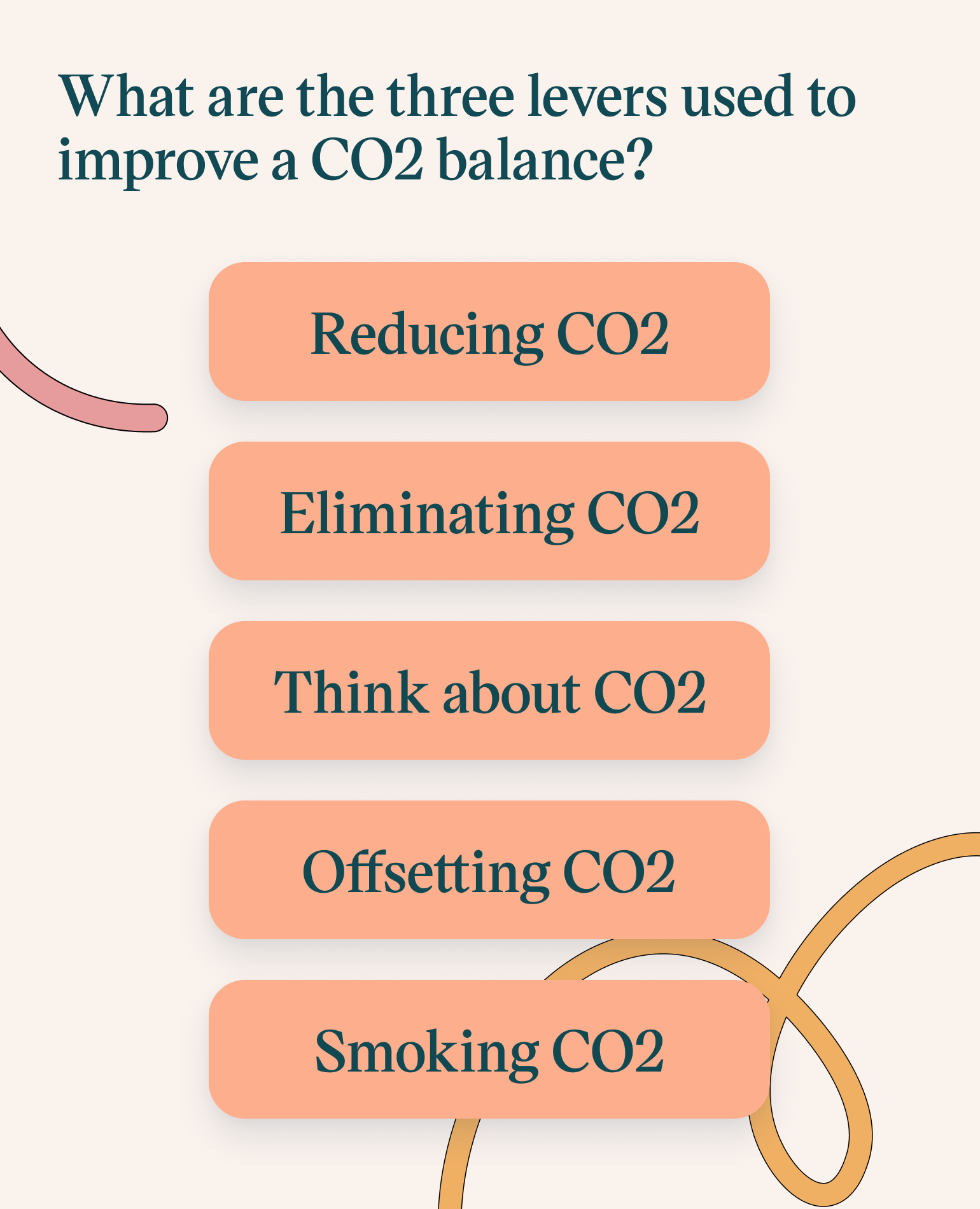
5.
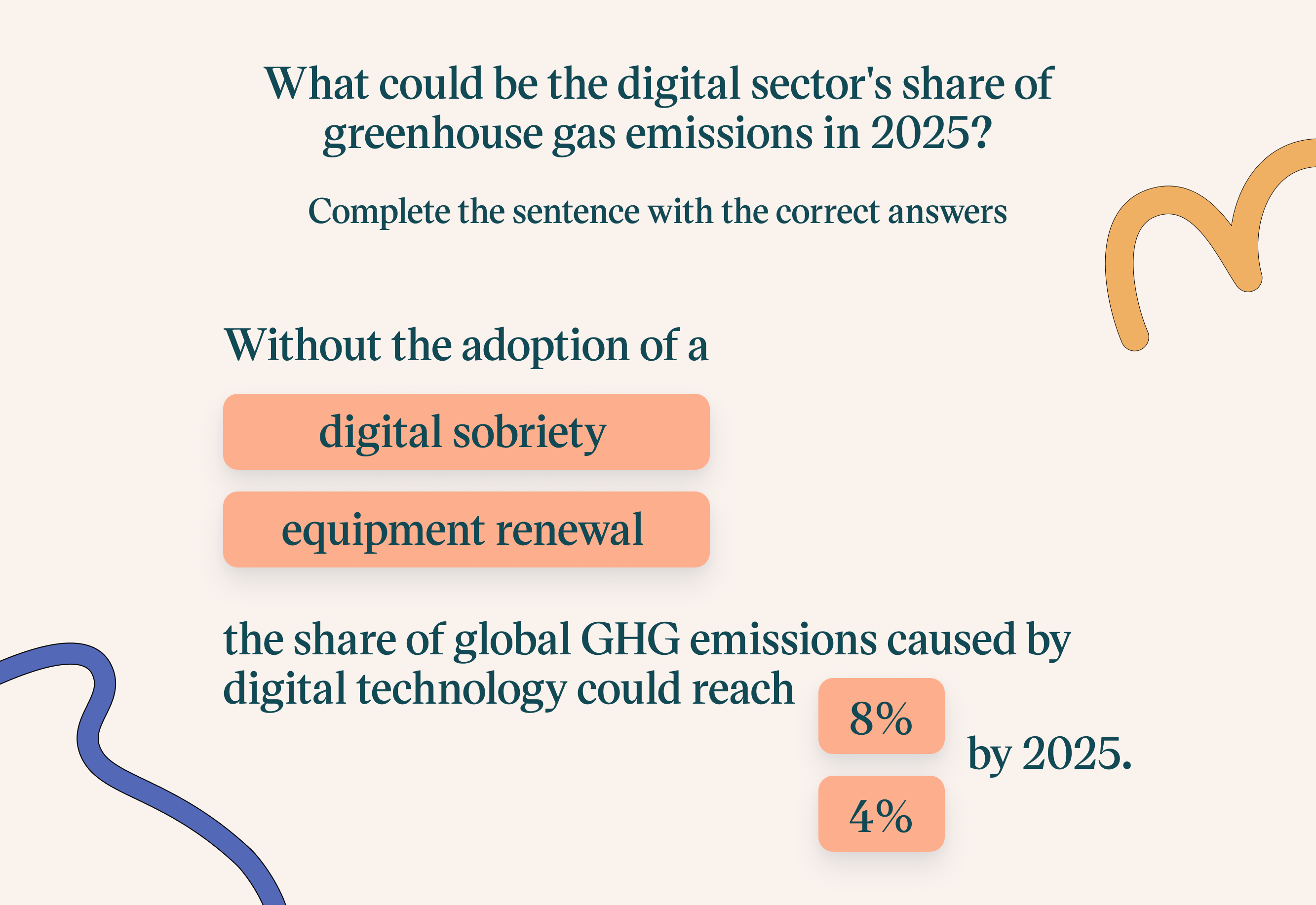
6.
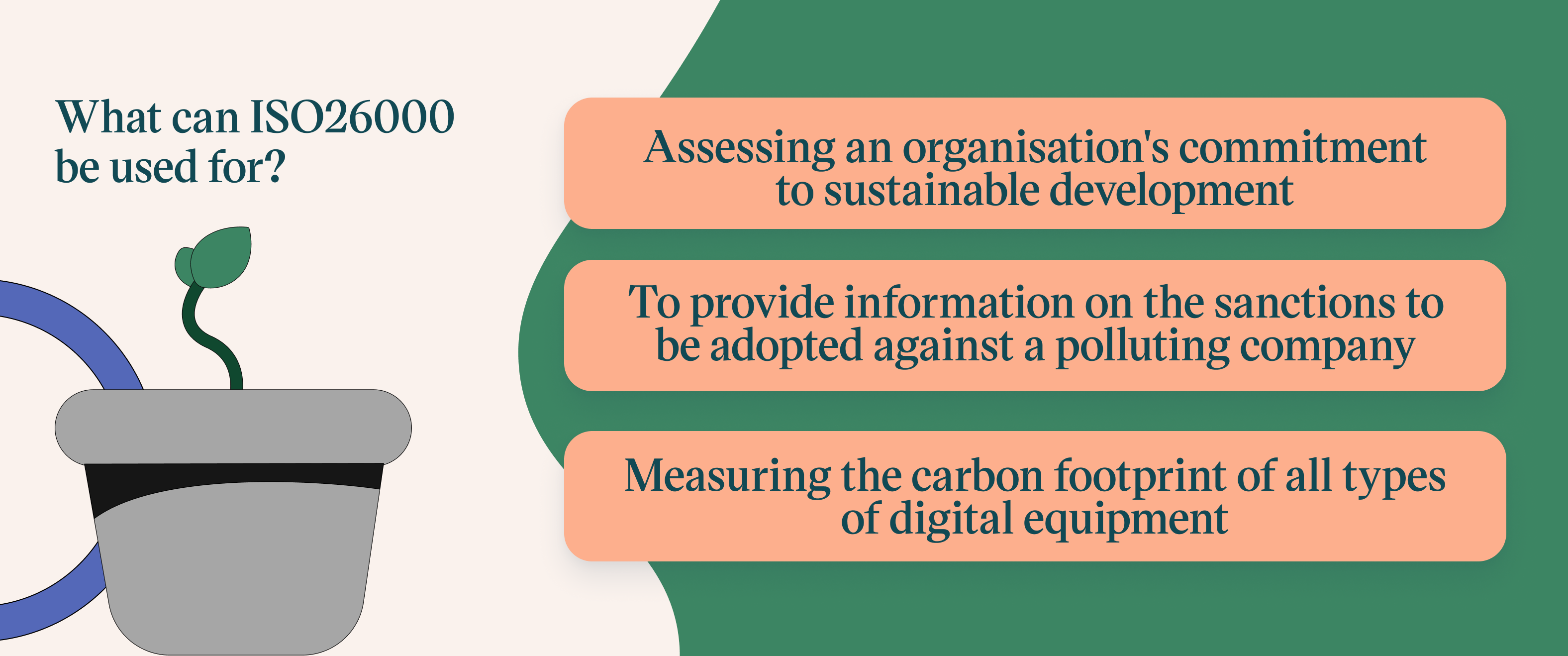
7.
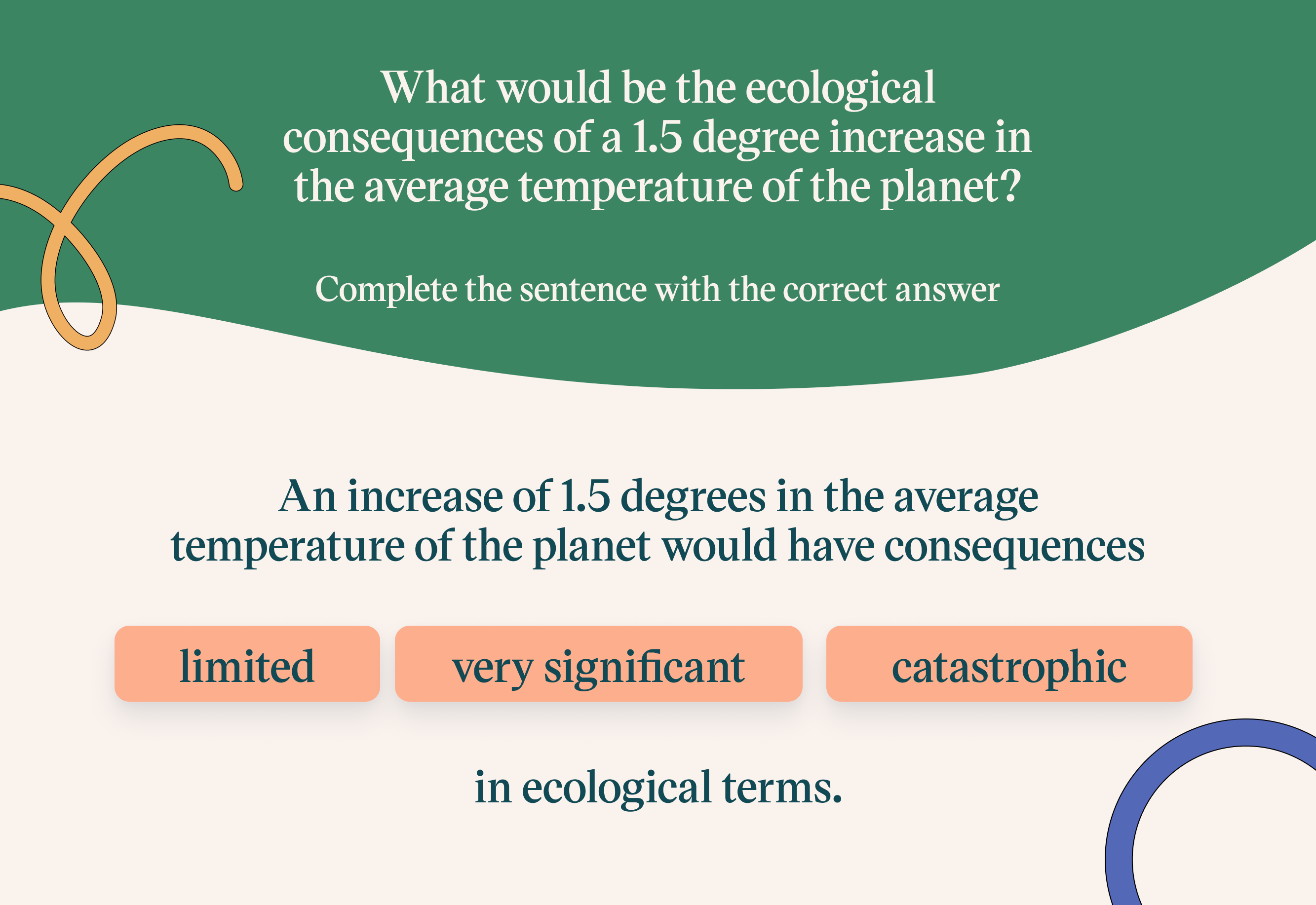
8.
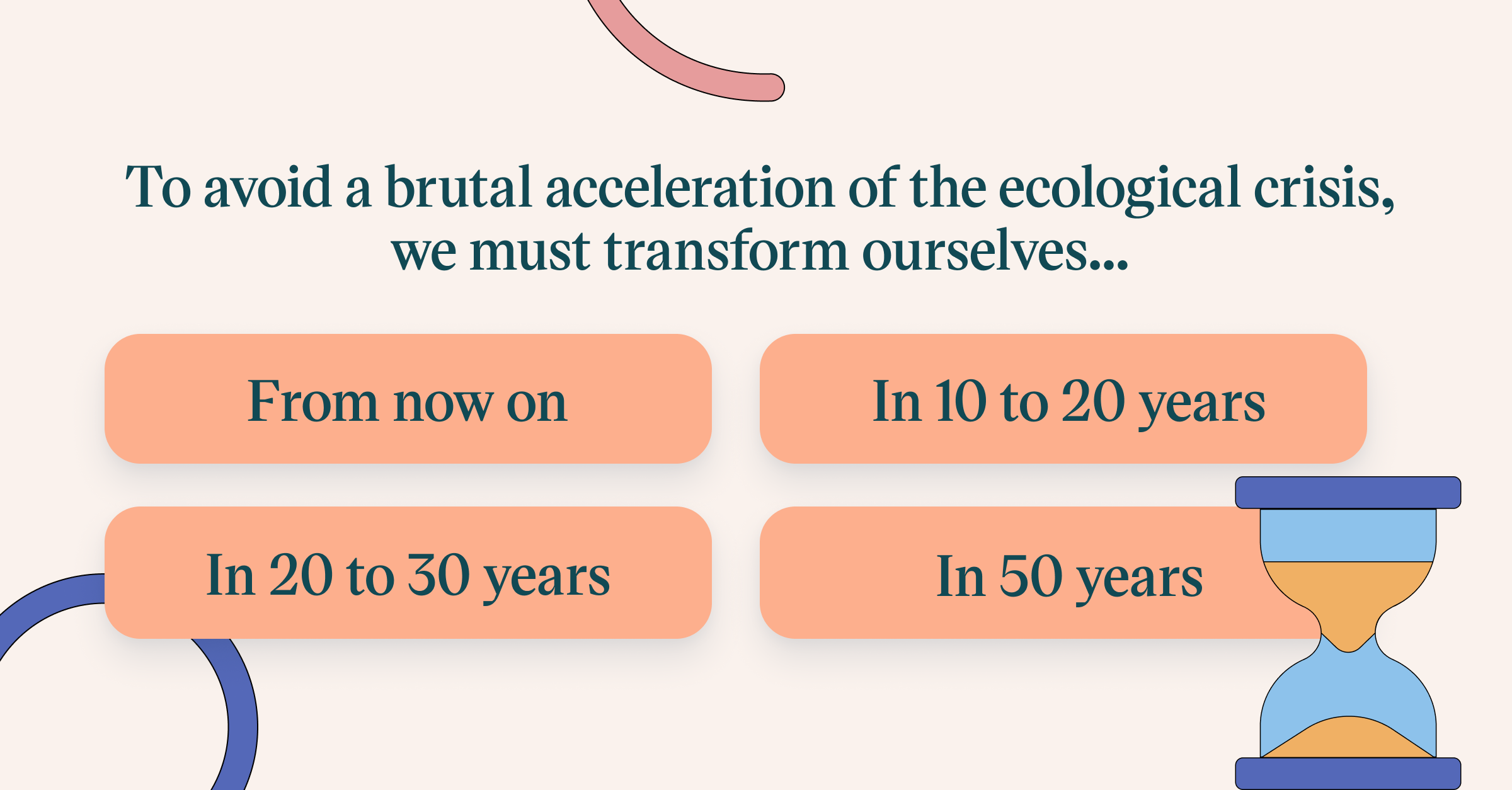
9.
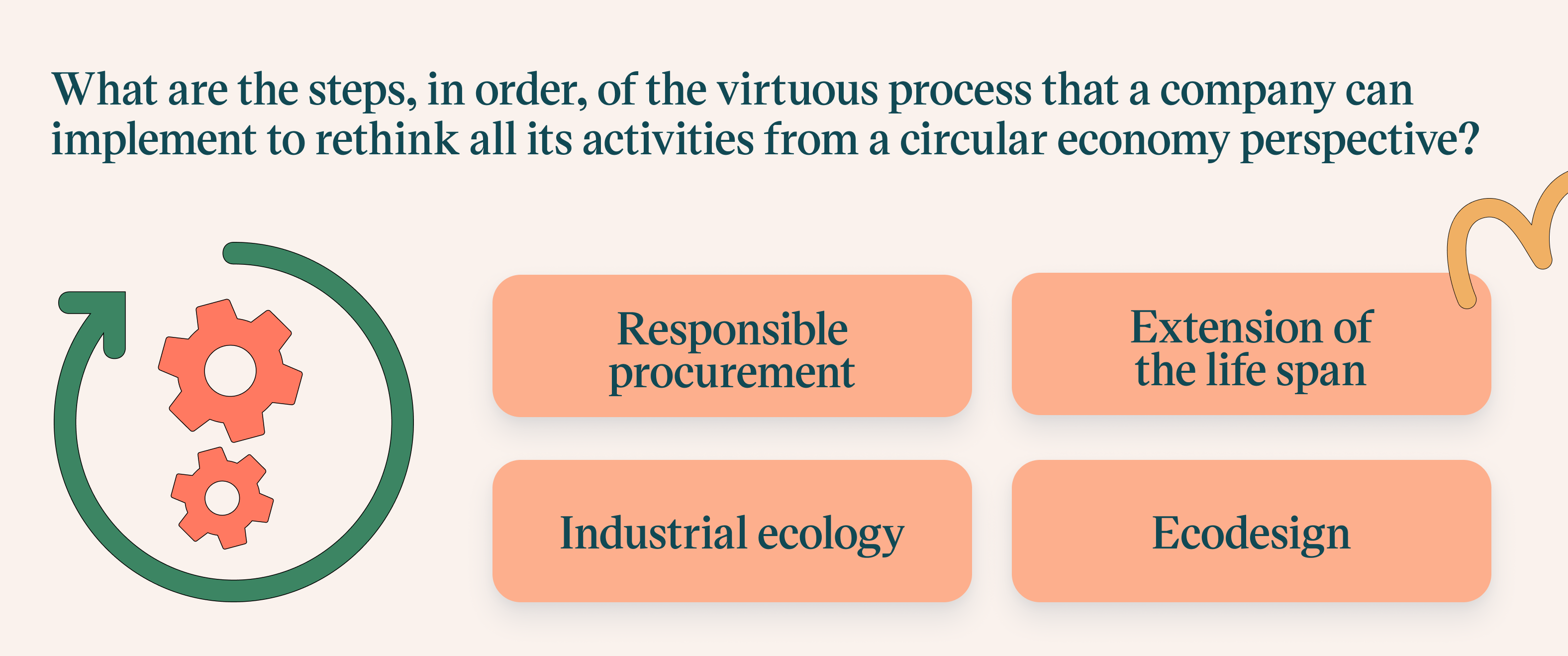
10.
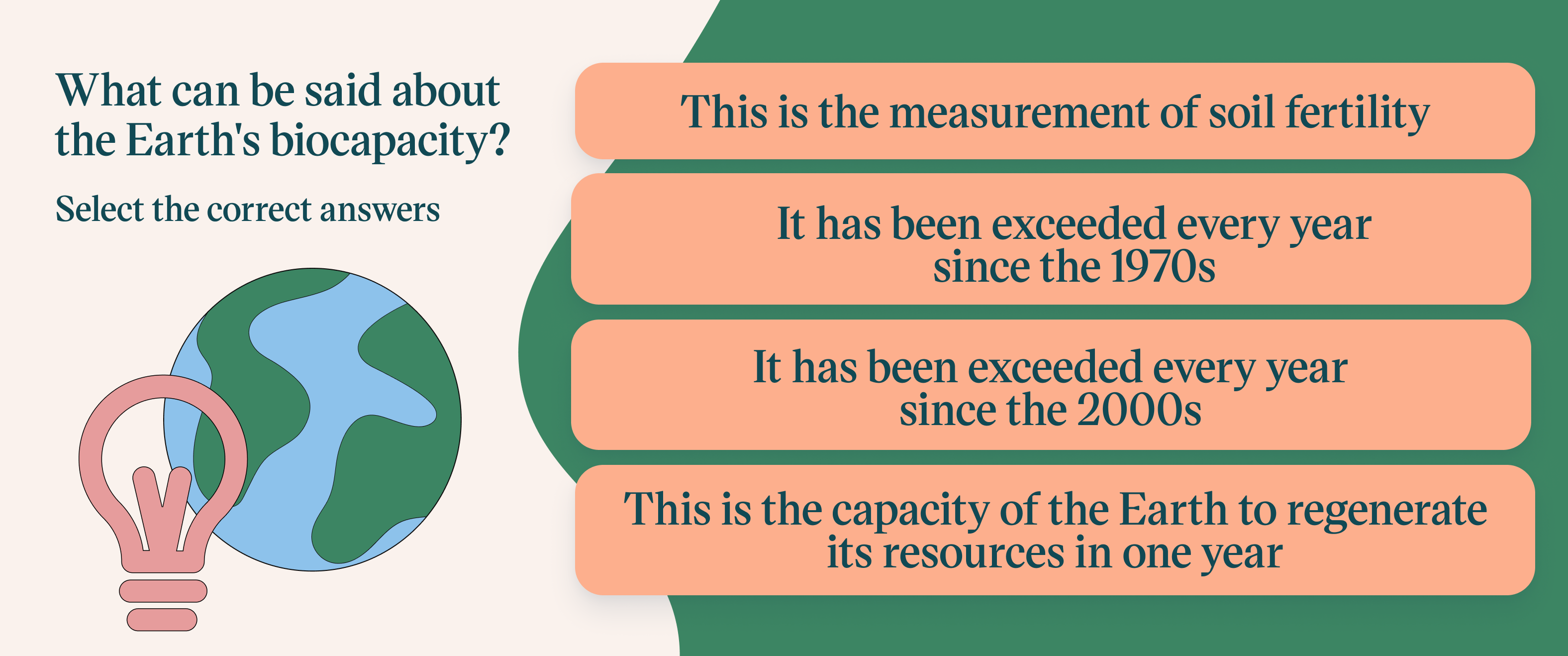
Answers :
Question 1: The ecological transition is primarily a technical and technological problem: False.
Key point
Beyond the technical aspect, the ecological transition also involves transforming our social and political norms.
Did you know that?
It is up to us to make existing technologies evolve or to develop new ones so that they are compatible with the ecological transition. The IPCC’s concerns were not taken into account until too late. This is partly because the scientific means to measure the effects of human activity on the climate were not developed until late. This is proof that technological and scientific innovation also has a role to play in raising collective awareness.
Question 2: What is the first step in implementing a sustainable business transformation strategy? Question 3: Measuring impact
Key point
To act on your environmental impacts, you must first know and measure them!
Did you know that?
Many methods exist to measure environmental impacts: Greenhouse Gas Assessment, Biodiversity Footprint, Water Footprint, Ecological Footprint…
Question 3: What are the three types of greenhouse gas emissions?
Key point
Type 1: Direct emissions from owned or controlled sources.
Type 2: Indirect emissions from energy production, heating and electricity in our facilities.
Type 3: All indirect emissions (that were NOT included in Type 2) that occur in the reporting company’s value chain, including upstream and downstream emissions.
Did you know?
In an effort to reduce its carbon footprint, WeWork banned its employees from eating meat. This decision has received mixed reactions, although the company estimates that it will save over 200kg of CO2 emissions as well as 15.5 million animals by 2023.
Question 4: What are the three levers used to improve a CO2 balance?
Key point
There are 3 levers to reduce the impact of CO2 on the climate: reduce, eliminate and offset CO2.
Did you know?
Carbon reduction works by using fewer resources and renewable energy sources. Offsetting can be implemented through human actions to sequester CO2. Finally, CO2 can be physically removed from the atmosphere and locked away for decades, centuries or millennia, for example in the soil or in materials.
Question 5: What share of greenhouse gas emissions could the digital sector account for in 2025?
Key point
Digital’s share of annual global greenhouse gas emissions could reach 8% by 2025 if we do not adopt a digital sobriety approach.
Did you know?
The Green Web Foundation, founded in 2006 and based in the Netherlands and Germany, is working towards a day when the internet is powered entirely by renewable energy.
Question 6: What can ISO26000 be used for?
Key point
There is no universal indicator of the social and environmental impact of a company’s digital activities. The ISO26000 standard, however, provides a useful framework for assessing the CSR policies of suppliers and service providers.
Did you know?
The ISO26000 standard provides CSR guidelines that are applicable to any type of business, regardless of size or location.
Question 7: What would be the ecological consequence of a 1.5 degree increase in global average temperature?
Key point
This is what is happening with global warming: at the moment, we are starting to see consequences, in a patchy way, but if we go beyond 1.5 degrees of temperature increase, or worse, 2 degrees, the consequences could be really dramatic, leading to a runaway climate.
Did you know that?
For example, a temperature increase of 1.5°C would cause 70% of corals to disappear. With an increase of 2°C, all corals could disappear.
Question 8: To avoid a sudden acceleration of the ecological crisis, we must transform ourselves…
Key point
To avoid exceeding these thresholds and finding ourselves in a process of irreversible global ecological crisis, it is necessary to take the lead and act now on ecological issues, without waiting for the consequences to be too serious, because then it will probably be too late.
Did you know that?
In ecology, an ecological crisis is defined as a perennial erosion of the biodiversity of a given ecosystem or species whose impact on the rest of the ecosystem under consideration permanently alters that ecosystem. Combined with global warming, the erosion of biodiversity forms a global ecological crisis.
Question 9: What are the steps, in order, in the virtuous process that a company can implement to rethink all its activities from a circular economy perspective?
Key point
The right answer: eco-design, responsible sourcing, industrial ecology, life extension
To limit its impact on the environment and be part of a circular economy, a company can :
Eco-design its products or services to anticipate the impact of its activity
-Ensure that its supplies are responsible
-Rethink its production methods through industrial ecology
-Extend the lifespan of its products
Did you know?
The circular economy offers many advantages to companies that commit to this approach. For example, it allows for better cost control through the reduced use of raw materials that are increasingly expensive due to their scarcity. In addition, companies are encouraged to innovate in order to produce less, but better, which can offer them new economic perspectives with access to new markets.
Question 10: What can be said about the Earth’s biocapacity?
Key point
This is the capacity of the Earth to regenerate its resources in one year, and has been exceeded every year since the 1970s. Since the 1970s, we have been exceeding the Earth’s biocapacity, i.e. we are consuming more natural resources than the planet is able to produce in one year.
Did you know that?
The IPCC, Intergovernmental Panel on Climate Change, was established in 1988 and has 195 member states. It synthesises the state of knowledge on climate change and the role of human activity. It then informs the States so that they can define appropriate policies to meet the challenges identified.
To go further, discover our course playlist “Go green” made up of all our training content on the subject!
Would you like to know more about our Digital Learning offer? Meet our experts during a demo of our solutions by clicking here.

